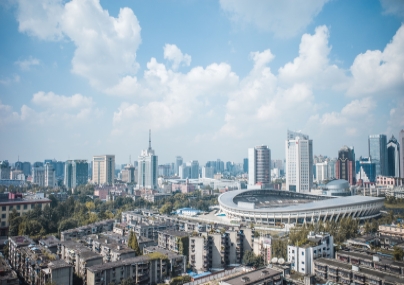By Li Hui and Adam Jourdan
China will ease curbs on foreign investment in joint-venture hospitals, the government said on Wednesday, as it deepens a sweeping overhaul of its healthcare system aimed at cutting costs and sprucing up overloaded public services.
China is an appealing market for pharmaceutical firms and medical equipment makers, with spending in the industry expected to nearly triple to $1 trillion by 2020 from $357 billion in 2011, according to consulting firm McKinsey.
In a healthcare reform plan for 2014 published on its website, China's cabinet, the State Council, said it aimed to relax limits on foreign investment in hospitals on the mainland.
The plan would include "reducing restrictions on the percentage of foreign ownership in medical JVs and collaborations," it said.
The move would increase the number of locations where Hong Kong, Taiwan and Macau investors could set up wholly owned medical centres, and let overseas investors set up wholly owned hospitals in areas such as the Shanghai free-trade zone.
The statement gave no details on the timing of the move.
China's private healthcare sector has drawn investment from both domestic and overseas firms as the government opens it up to attract funds and reduce the burden on public hospitals.
Healthcare providers such as Singapore-based Raffles Medical Group Ltd, Malaysia's IHH Healthcare Bhd and U.S.-listed Chindex International Inc already operate in China. TPG Capital and China's Shanghai Fosun Pharmaceutical Group bought Chindex in a $461 million deal last month.
"You're seeing a wholesale shift with greenfield hospitals and public-to-private conversions," said Alexander Ng, Hong Kong-based associate principal at McKinsey.
"Private equity funds, both local and foreign, as well as a number of conglomerates, are all heading into that area to meet the demand."
Graft crackdown
The ambitious overhaul also aims to bolster insurance coverage and crack down on graft, key areas for President Xi Jingping, who is looking to improve access and cut healthcare costs for the country's population of nearly 1.4 billion.
Since 2009, China has spent 3 trillion yuan ($480 billion) on healthcare reform, but the system still struggles with a scarcity of doctors, attacks by patients on medical staff and a fragmented drug distribution and retail market.
China's underfunded network of 13,500 public hospitals relies heavily on drug sales, contributing to inflated prices, kickbacks and tension between patients and doctors.
About 40 percent of public hospital revenue in 2011 came from prescribing drugs, Health Ministry data show, while medical services accounted for just over half, with government subsidies and other income making up the rest.
China will clamp down on fake drugs, kickbacks to doctors and illegal sales tactics, the government said.
Chinese authorities this month charged officials of British drugmaker GlaxoSmithKline Plc with corruption, as the crackdown on graft and high prices in healthcare heats up.
Affordable
China will also stiffen monitoring of the prices of imported drugs and medical equipment, the State Council said.
Although new policies will make services such as surgery and diagnosis more costly, they will help reduce drug mark-ups, while a government scheme to buy medicines will cut costs.
Health authorities will also extend to the entire country a special insurance system to fight major illnesses.
Many people complain that serious illnesses, such as cancer and diabetes, can bankrupt households under the current system, where patients often have to pay much of the cost out-of-pocket.
China will also boost annual subsidies for basic medical coverage by 14 percent to 320 yuan per person, the Ministry of Finance said on Tuesday.
China's poorer western and central areas will get more aid as the government looks to close the healthcare quality gap with the east coast and inland regions.


